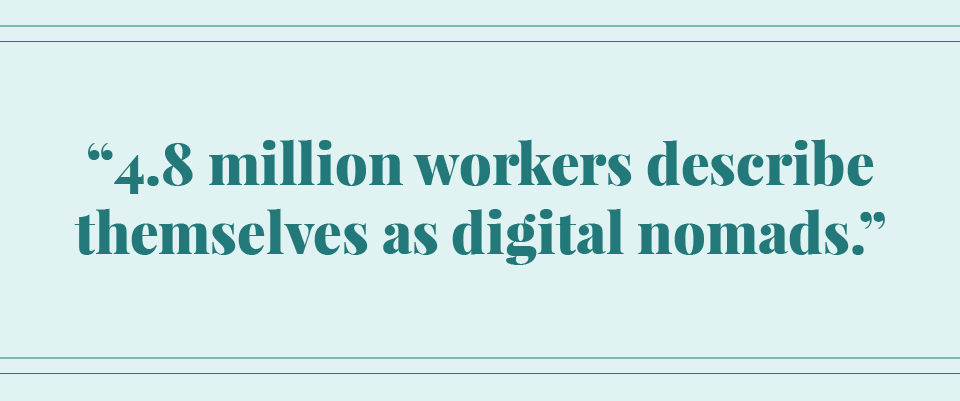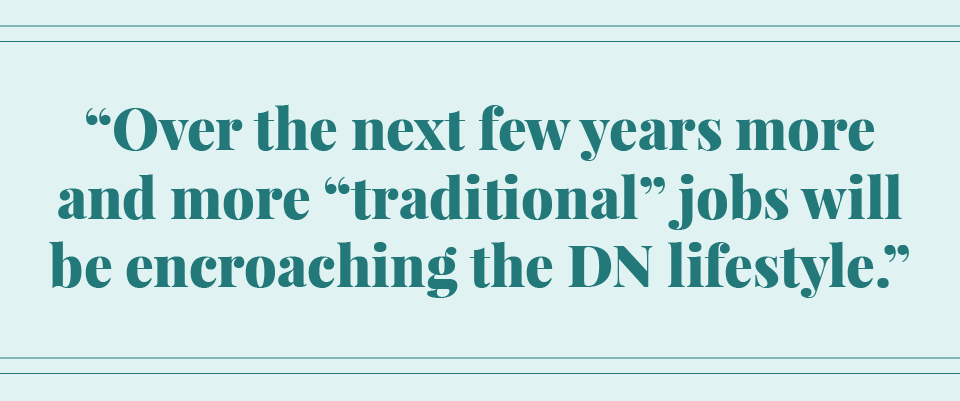Remote work is undeniably a huge part of the future of the modern workforce.
For too long, logging 8+ hours in an office setting has been an obsession among many workers. How many hours are you sitting at your desk? How late did you leave the office last Wednesday? At some point, may of us woke up and asked, “Why am I spending this much time in the office?”
With workplace-specific burnout being officially recognized as a diagnosis by the World Health Organization, the need for flexibility has never been more apparent or clinically necessary.
A
recent article from The New York Times credits Millennials and Generation Z with forging this war against the traditional 9-5. Instead of higher salaries and stock options, younger workers are increasingly asking for one specific thing instead: flexibility.
In order to bring awareness to remote work and to celebrate it, Logitech has proudly acted as the “unofficial sponsor” of #WFHWeek. This year, however, we’re talking about a newer reality—the fact that we can work from just about anywhere nowadays.
Enter the digital nomad. The digital nomad embodies everything Logitech’s #
WorkFromAnywhere Week represents.
What is a Digital Nomad, Anyway?
A digital nomad is like a remote worker—but turned all the way up to eleven.
Your typical remote workers or flexible workers conduct business from their homes. Digital nomads take it to the next level, often working from foreign countries, coffee shops, public libraries, or co-working spaces. Unlike the typical flexible worker, a digital nomad changes zip codes frequently, even acquiring a few passport stamps in the span of a month.
Before embarking on your own journey as a digital nomad, there are a few things to get organized. The first step, pretty universally accepted amongst all digital nomads, is to get rid of any outstanding debt you have. This way, you can focus on earning money, not paying off prior debts.
Digital nomads are fueled by the desire for freedom and their insatiable wanderlust. They fully embrace the itch to experience new cultures, see new sights, and meet new people—all while earning an income.
Digital nomads can either operate on a self-employment basis or as a remote employee for a company. In
research conducted by MBO Partners, a reported 4.8 million workers describe themselves as digital nomads. This research also found that 27 percent of respondents said that they might become digital nomads in the near future. As a result of this shift, major companies are taking note of the rise of flexibility, digital nomads, and the Work From Anywhere lifestyle.
The Skills You Can Use to Earn as a Digital Nomad
While many companies are coming around to the idea of remote or flexible work, digital nomads are usually more of an independent entity, often working like an entrepreneur or freelancer.
While developing this article, we spoke with one of our readers,
Arletta Gromek, who has been operating as a digital nomad for the last 8 months, to lend us some advice. As a proud entrepreneurial nomad, Gromek explains that she has opened herself to job opportunities she wouldn’t have considered if she were in a standard office-bound 9-5.
“The digital nomad communities are saturated with bloggers, influencers, web developers, and marketers. But over the next few years more and more “traditional” jobs will be encroaching the DN lifestyle. I’ve worked with remote lawyers, CPAs, life coaches, and even nutritionists.”
Digital nomads can utilize a variety of skills to earn money, whether recurrent or one-off projects. Here are some common skills digital nomads use to earn their living.
Writing + Copywriting
With strong writing skills, you can get any jobs from content creation to copywriting for companies. Compound your writing skills by learning other skills like SEO or digital marketing. This sort of targeted and skilled writing will open you up to opportunities with high-growth startups while charging more money.
Virtual Assistance
Another great option for digital nomads is the virtual assistant route. Virtual assistants can be responsible for anything from answering emails to data entry.
Depending on the type of company or individual contracting work, virtual assistants can stand to bank many hours and learn brand new skills in the process—these are the very skills they can then funnel into their next job opportunity.
Translation
If you can write and you speak more than one language, then translation jobs will be a great source of income as a digital nomad. Depending on the languages you speak, living abroad can be a huge advantage, as it opens you to jobs only available to confident bilingual workers.
If you are fluent in more than one language, you can also look for teaching jobs in foreign countries. While this may not allow you to earn the money that SEO writing or programming would, it’s a nice way to put some reliable income in your pocket. Companies like
VIPKid also make it easier than ever to find clients looking to learn English—from anywhere.
Social Media Marketing
There are tons of ways to monetize through social media. Whether you’re making money as an influencer or working freelance for a company, social media is a job that requires minimal technical knowledge (but maximum creativity!) and can be done from anywhere.
However, it’s important to keep time zones in mind, especially when traveling and scheduling posts.
Web + Graphic Design
Design skills are lucrative and they pretty much always will be. Add a
web design expertise to that and you can build a nice client base. Another great thing about design is that it can be done largely without the internet. A great resource for gaining graphic design clients is 99Designs.
Coding + Programming
Developers are well-suited to becoming successful digital nomads. Why? They have an extremely in-demand skillset—one that requires hours of heads-down work and typically does not require an in-office presence. There are even integrations like
Screenhero that allow two remote developers to work in tandem from anywhere (with internet) in the world.
Consulting
Got business expertise or a certain financial prowess? Become a freelance consultant and share your unique perspectives with startups or struggling businesses across the world.
The Keys to Working (and Thriving) Remotely
If you’re planning to make the pivot to become a digital nomad and you’ve acquired the requisite skills to do so, you’re still not finished.
There are a few technical aspects to thriving as a digital nomad. For one thing, you’re not going to wake up everyday and travel to an office rich with WiFi. In fact, when traveling, you need to be ready for anything. Preparedness and a certain MacGyver quality are crucial to anyone who is going to thrive as a digital nomad.
Here are a few technical and house cleaning points to iron out before venturing out to live out your digital nomad fantasies.
Good, Reliable Internet
Good, reliable internet is essential to any digital nomad. We suspect that “planning” is a dirty word to many digital nomads, but planning for internet access will save you a ton of headaches. Wifi is crucial to getting paid work. According to Gromek, “No Wifi? No work!”
Lucky for you, free and fast internet is available pretty widely in cities across the world. Great places to look for emergency internet include cafes, libraries, and even some public parks. Some cities even have free Wifi set up throughout their city limits—for anyone to access.
If you’re staying put in one place for a while, make sure to stake out your most reliable internet options upon arriving. You will require especially reliable (and strong) internet for any video conferencing or large file transferring.
Communication Software
Once you have your internet settled, you will also want to have a game plan for what communication tools you’d prefer to use. Collaboration tools like Google Hangouts, Zoom, and Microsoft Teams supplemented with good old-fashioned email can help you stay up-to-date with your clients.
Nomad Community
When becoming a digital nomad, it’s essential to create some community—especially with other digital nomads. Gromek, a correspondent nomad, explains, “I found an entire community of people who work remotely, that depend on Wifi and their laptops to make an income.”
Even if this community is mostly online—which it likely is—connecting with other digital nomads can be crucial to success. Other nomads are going to have the best advice about where to find the best Wifi, the next great place to see, and other nitty-gritty aspects of this unique lifestyle.
Health Coverage
Health insurance is crucial—wherever in the world you may be. Health coverage isn’t always the most straightforward, so it’s important to put in the legwork of researching and implementing good health insurance before you ever end sick up in a foreign hospital.
Research global and international health plans to see what best suits your needs. They cover everything from emergency medical expenses to vaccinations, worldwide.
Get Out There!
Think digital nomadship is for you? Our favorite nomad, Arlette Gromek, leave us with her vision on the future of digital nomads, explaining,
“The digital nomad lifestyle is a technological and cultural inevitability. As we're entering a more globalized economy, our communication tools and methods are becoming more advanced. More and more companies are realizing each day that their employees don’t need to be sitting in an office in order to get the job done.”
There are tons of great resources throughout the web on how to embark on your next working adventure and #WorkFromAnywhere












